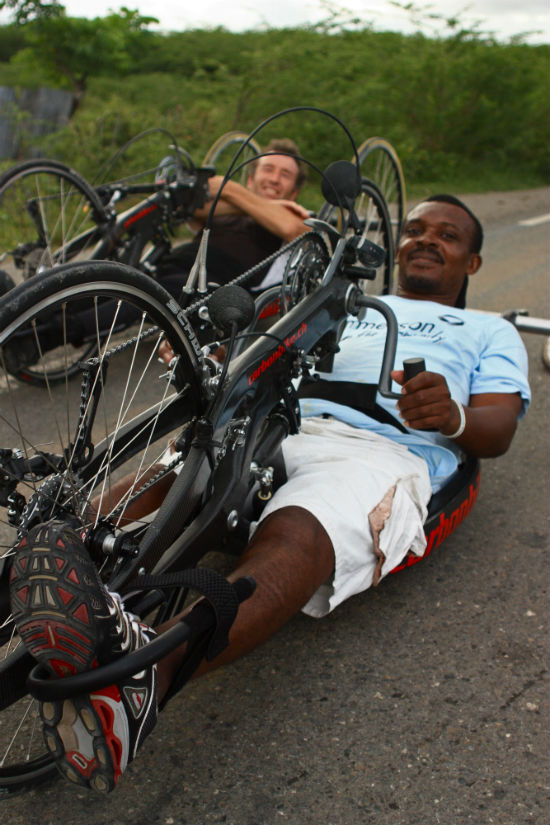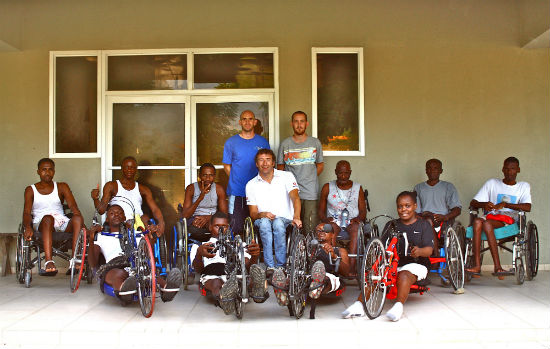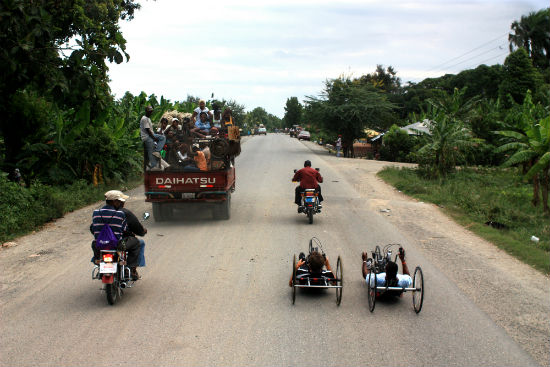
If you had a photograph capturing an instant of social change, what would it look like? Would it be of a quiet individual or a group in protest? What symbols or characters would it include? How would it define transformation?
Social change is most often slow and evolutionary, through dialogue, patience, endurance, compromise, and synthesis. However, there are rare moments when a single shock destroys entrenched views and prejudices, and forces a new framework of understanding. Sure, these jolts need to be in the right time and place, and are most effective because of smaller changes that happened before and the power and planning of actors to sustain their effects, but they clearly delineate a before and after.
A few months ago I was in Cap-Haitien, Haiti documenting the programs of a fantastic hospital that, among other things, provides long-term care for patients with spinal cord injuries (SCI). One of those patients was Leon Gaisli. Leon lost his eight children and wife to the crumbling walls of his home in Port-au-Prince in 2010. The quake also caused his severe spinal cord injury, and once found amongst the rubble, Leon was flown to Cap-Haitien to receive treatment and physical therapy, being told he may never walk again. His tragedy and pain was compounded by a harrowing social stigma against people with disabilities. It is estimated that 10 percent of Haitians have some type of disability, yet in a country where most citizens are politically and economically disempowered, those with disabilities fall low on the totem pole and are mocked and abused.

When I first encountered Leon he was not downtrodden in a corner, he was not splayed on a hospital bed, he wasn't even in a wheelchair. He was instead a shiny red blur whizzing by me at a cool 25 mph down a bumpy stretch of torn concrete. The Swiss Paraplegic Foundation had sent over coaches and new racing bikes to support a program that trained SCI patients in hand-cycling. Throughout the following week, I caught glimpses of Leon's training and rigorous workouts, and was able to follow him as he took his first long distance ride through the streets of Cap-Haitien. Standing on the flatbed of a truck, one hand clutching a friend for balance, the other grasping my camera, I rode behind Leon and his Swiss trainer as they embarked on the perilous streets of the city, their bodies just inches from the ground. That first ride was remarkable for two reasons: I believe it marked a turning point in Leon's life -- where he was no longer defined as a patient but instead as an athlete, and it was an thrilling and unconventional moment of social change.
As Leon sped around corners and through local communities, the visual of him cycling on a high-tech and somewhat strange looking piece of equipment, turned every head -- faces of perplexity, melting into complete joy. Leon on that bike forced viewers to rethink their ideas about disability; he demonstrated in that moment the ability and power of people living with a disability.
Leon competed in the Parapan American Games in Mexico in 2011, and is now part of the first-ever Haitian team competing in the Paralympics in London. His story is no longer just about his own life -- he has risen to the status of symbol and hero. The 2012 Paralympic Games begin tomorrow, Wednesday August 29th and run through September 9th. Tune in and cheer on Leon and his fellow Haitian teammates Josue Cajuste and Nephtalie Jean Louis, and witness another significant and historic moment of change -- for Haitians and all those living with disabilities in the developing world.

To learn more about the Haitian Paralympic Team visit: http://www.haitidream.org/
To learn more about the Hospital and Training Center supporting Leon visit: http://haitihospitalappeal.org/
